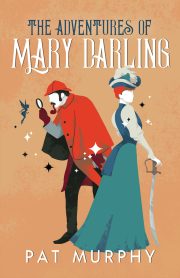Guest Blog Post Writers Be-Wary: Electronic Distribution and Control of Creative Material
Posted by Victoria Strauss for Writer Beware
Today: another guest blog post of relevance to freelance writers. This one covers content aggregators, and the pitfalls that may be lurking in their Terms of Use.
Authors create the content blog aggregators need for their web collections. Each gains in different ways. Greater variety of material and steadier receipt of content make the aggregator’s website more valuable. Because aggregating content is a business, licensing agreements will primarily reflect the aggregator’s interests. Benefits to authors are more readers and (possibly) recognition.
This may be a fair exchange even if the author is un- or minimally compensated monetarily for her work. However, productive authors who wish to retain control over their contributions may find aggregators’ “Terms of Use” or “Submission Guidelines” unacceptable. It is a fair question: What does an author give up in exchange for granting a license to have her content aggregated and accessible to the searching public?
The aggregator’s license should acknowledge the author’s copyright ownership as part of the grant of rights. The Copyright Act states that “Copyright protection subsists … in original works of authorship fixed in any tangible medium of expression” (§ 102). Content submitted for aggregation is protected by copyright but the remedies for copyright infringement require registration. There is no immediate remedy for unauthorized publication of unregistered content however egregious the taking. Copyright registration is not expensive but it may be (or is thought to be) uneconomical and time-consuming.
The questions concerning aggregators’ “Terms of Use” are more than academic because they can affect an author’s income and future. Active content creators produce original material which can be collected and reworked into other formats. One of the exclusive rights an author has under the Copyright Act is the right “to prepare derivative works based upon the copyrighted work”(§ 106(2)). It is one thing to grant limited rights of publication and distribution to an aggregator on a nonexclusive basis, and another to cede control of statutory rights even in exchange for payment. The difference between exclusive and nonexclusive licenses is significant. A nonexclusive license is usually terminable at will and can be granted to multiple publishers and distributors. An exclusive license limits and controls how an author can exploit her own original work.
It is prudent before granting rights for the author to carefully examine the terms under which the aggregator accepts content in exchange for publication. Not all terms are equally beneficial to the author. There are different business models, all of which have the ultimate purpose of creating revenue for the aggregator. Some aggregators create libraries of material which are accessed for payment. Other aggregators generate revenue from the advertising on their websites. Some models share revenue with authors.
The potential problems are illustrated by several examples. In drawing attention to terms in the following agreements, we are not suggesting deliberate attempts to benefit at the author’s expense. Rather, we are pointing out that the agreements are presented on a “take it or leave it” basis, which is always a sign for caution.
1. ODP (Open Directory Project) is a comprehensive directory of Web resources.
In exchange for ODP’s agreement to include an author’s work, the author “[grants] AOL LLC. Corporation a non-exclusive, royalty-free license to use, publish, copy, edit, modify, or create derivative works from my submission.”
The catch is “edit, modify or create derivative works from my submission.” Although the ODP license is nonexclusive, the author grants AOL extensive rights to the blog content. The author can terminate the license but derivative works created from the author’s submission are owned by the aggregator “royalty-free.”
2. BLOGLINES is an aggregator of syndicated news feeds operated by the broadcaster WYBS.
The Bloglines Terms of Service assert that “WYBS does not claim ownership of the Content you place on your Private Page or Public Page,” but “[b]y uploading, submitting or otherwise disclosing or distributing content of any kind on the WYBS website or otherwise through the Bloglines Service,” – here comes the kicker –
“[You] Grant to WYBS, its affiliates and their assignees the perpetual, irrevocable, non-exclusive, royalty-free right to use, reproduce, display, perform, adapt, modify, distribute, make derivative works of and otherwise exploit such content in any form for the purpose of providing the Bloglines Service, including without limitation, any concepts, ideas or know-how embodied therein….”
Even though Bloglines disclaims ownership of blog content, the author has lost control of her work. She has granted WYBS the right to “exploit such content in any form” on a “perpetual [and] irrevocable” basis that includes the right “without limitation … to exploit such content … and any concepts, ideas or know-how embodied therein.” The “non-exclusive” grant is meaningful only to the extent that the author is in a position to exploit her work in the same fashion as the aggregator.
3. CURATA is a content curator for businesses which describes itself as “how smart marketers produce a consistent stream of high-quality content.”
Curata’s Terms of Use state that: “By submitting, posting or displaying Content you give us an irrevocable, worldwide, royalty-free, and non-exclusive license to reproduce, adapt, modify, translate, publish, publicly perform, publicly display and distribute any Content which you submit, post or display on or through, the Website. You represent and warrant to us that you have all the rights, power and authority necessary to grant the above license. You agree that you are solely responsible for (and that we have no responsibility to you or to any third party for) any Content that you create, transmit or display or permit to be created, transmitted or displayed while using the System and for the consequences of such actions (including any loss or damage which we may suffer) by doing so.”
Although Curata does not include the right to “derivative works,” the license effectively grants it if the aggregator can “adapt, modify … publicly perform [and] publicly display” any content the author creates, transmits or displays.
In each of these examples the author licenses rights to an aggregator who can exploit her work without her approval of how the work is used. If the license is nonexclusive the author can exercise the same rights as the aggregator and is not prevented from licensing to others. However, without approval or consultation the author effectively loses control of many copyright rights and potential revenues. Productive authors have to be particularly careful because their original content can be collected or packaged in different formats by aggregators or reworked into books for traditional or e-publishers.
All authors should assess the benefits of aggregator sites and consider how much they are prepared to give up in exchange for dissemination of their work to audiences larger than they themselves can attract.
Levine Samuel, LLP is a New York firm providing personal legal services for a variety of litigation, including publishing law. Sheila J. Levine and Gerald M. Levine are co-authors of a blog on publishing law and copyright, Legal Corner For Authors.



